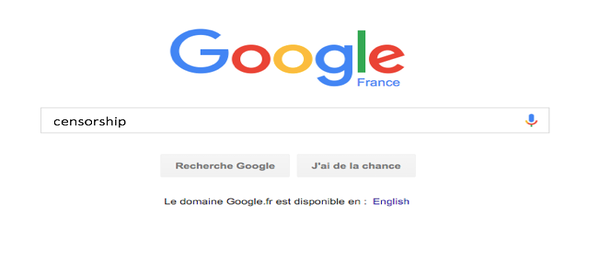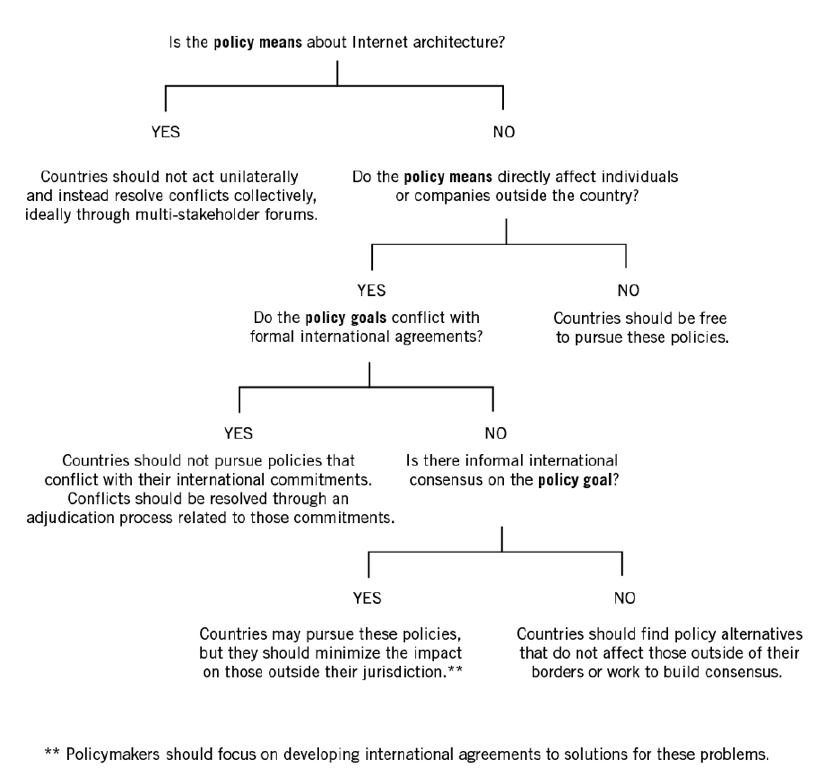
France Demands Right to Censor the Global Internet

In 2014, Europe’s highest court ruled that Europeans have the ability to request that search engines remove links from queries associated with their names if those results are irrelevant, incorrect, or outdated. As a result of this ruling, Google agreed to delist search results from country code level domains—such as Google.fr for France—to remove offending results for European users, without affecting the rest of its users worldwide. Earlier this month, Google expanded its practice so that it now will delist offending results from all Google search domains, including Google.com, for all European users, based on geo-location signals, such as IP addresses. So a user in France would not see delisted URLs even if they visit Google.com instead of Google.fr. France is now saying that this is insufficient and Google must take down offending material for all users visiting any of its domains worldwide.
Last week, the French privacy authority, the Commission Nationale de l’informatique et des Libertés (CNIL), fined Google €100,000 ($112,000) for failing to remove links associated with French right-to-be-forgotten requests from its global search index. France is trying to force its domestic policies on the rest of the world by coercing a global company that resides in its borders to implement those policies on all its users. This is nothing short of extortion.
Imagine if the situation was reversed. Suppose that the United States passed a law forbidding search engines from linking to information about alcoholic beverages and subsequently demanded that Google remove all links to websites containing information about champagne or risk fines. How would France feel about such a policy?
No matter how much France would like to wish otherwise, there is no global consensus on the right to be forgotten. Critics around the world have derided this policy because of its negative impact on free speech and its other unintended consequences, such as bringing more notoriety to removed links than had they been left alone. While France has the right to implement the right to be forgotten if it believes it to be the right policy, other sovereign nations that put a higher premium on freedom of expression and transparency, like the United States, should not have to abide by laws passed outside their borders.
Instead, France should make policy by balancing its own national sovereignty with respect for the global nature of the Internet. ITIF developed a framework for policymaking on the Internet that can guide this effort (see graphic below). First, if the issue involves the Internet’s technical architecture, then a country should rely on and work within a global, multistakeholder entity, such as the Internet Corporation for Assigned Names and Numbers (ICANN), to decide core Internet functions. Second, if an issue directly affects individuals or companies outside its borders, then countries should look to formal international agreements on the subject. If there is a conflict, then the policy should not be pursued.
If the policy does not conflict with international agreements, then the final question is whether an informal consensus exists among countries that a certain policy goal is desirable. If this consensus exists, countries can pursue that policy, cautiously ensuring that they minimize its impact on individuals outside their borders. These countries can then work to build a formal international consensus on the policy. If there is no consensus, countries should work to build that consensus or find a policy alternative that does not affect people outside their jurisdiction.
Using this framework, France should find policy options that do not affect those outside of its borders. Google’s current efforts to remove links from Google.fr as well as Google.com based on geo-location fit this description. France can also take their argument to the world stage and try to convince other nations to voluntarily join their cause. If France is able to achieve international consensus on the goal, then it can work to develop international agreements to address this problem rather than taking action unilaterally. However, if France is unable to achieve this consensus, it should limit the impact of its laws and practices to within its own borders.
The Internet presents unique challenges for policymakers in all nations. While the framework proposed here is conceptually simple, it is needed to promote a global Internet where countries can work together even if they do not agree on the same goals or values. This should come from building an international consensus rather than through threats and intimidation.
Editors’ Recommendations
August 25, 2014
Another Problem with the “Right to be Forgotten”
December 10, 2014


